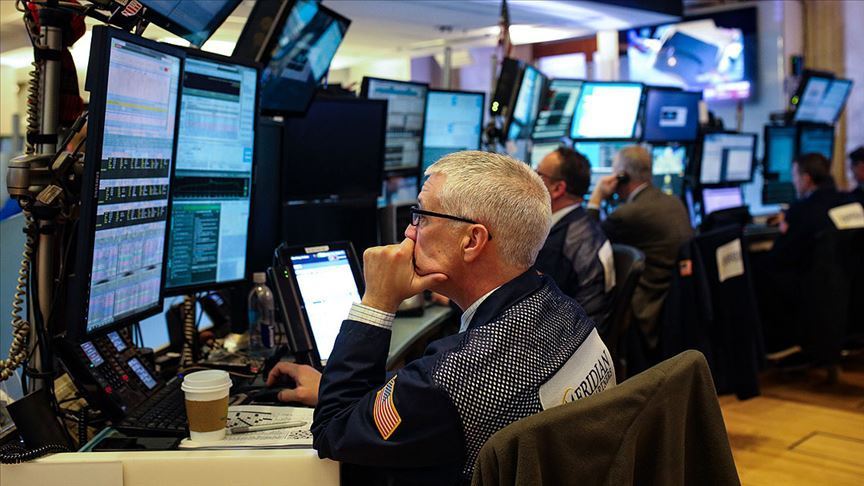While it was observed that the volatility was high and the risk appetite remained low during the last week due to the worries about the Russia-Ukraine war and increasing inflationary pressures in the global markets, in the new week, the eyes were turned to the interest rate decisions of the central banks in the USA, England, Japan and Turkey.
While the concerns about the Russia-Ukraine war and the effects of the sanctions imposed in parallel to the global economy continue to be decisive on the direction of the markets, the increasing number of cases in the new type of coronavirus (Kovid-19) epidemic in China has again become a source of concern.
While the high levels of commodity prices have strengthened the views that inflationary pressures will increase and will remain on the agenda for a longer time than expected, it is closely watched how the central banks will direct their monetary policies in an environment of uncertainty. In this context, the decisions and verbal guidance from the US Federal Reserve (Fed) meeting on Wednesday, the Bank of England (BoE) on Thursday, and the Bank of Japan (BoJ) on Friday are expected to provide important clues for the course of monetary policies in the future. In Turkey, the focus of investors is the meeting of the Central Bank of the Republic of Turkey (CBRT), which will announce its interest rate decision on Thursday.
Analysts stated that the first signals will be received this week in terms of the impact of the Russia-Ukraine war on the monetary policies of central banks, and said that the messages that the Fed will give about the size and speed of the rate hikes, which are expected to be made for the first time since November 2018, will be critical.
Analysts stated that the BoE is expected to continue to increase interest rates in the face of the highest level of inflation in the last 30 years, and noted that no change is foreseen in the ultra-loose monetary policy, which is applied contrary to the precedents due to the inflation falling below the targets, and that the forward-looking messages to be given in the decision text will be followed.
The barrel price of Brent oil, which saw its highest level since July 2008 with 131 dollars last week due to the concerns about the Russia-Ukraine war, closed the week with a decrease of 5.5 percent at 110.5 dollars due to the negotiation hopes and the intervention of different suppliers. With the effect of the increasing number of cases in the Kovid-19 epidemic in Turkey, it continued its decline and stabilized at the level of 107.5 dollars with a decrease of 2.7 percent. In the bond markets, the rise observed in the 10-year bond rates of the USA in the face of increasing inflationary pressures moved into the new week and the levels of 2.06 percent were tested.
While it was observed that the New York stock market followed a negative course due to increasing geopolitical risks and inflationary concerns, the Nasdaq index lost 3.53 percent, S&P 500 index 2.88 percent and Dow Jones index lost 1.99 percent on a weekly basis. The dollar index, which made the highest weekly close since May 2020 with 99.1 last week, was stabilized at 99.3 levels, starting the new week with a gain in value.
On the European side, volatility in the stock markets remained high due to the news flow about the Russia-Ukraine war last week, as well as concerns about energy supply, the rise in inflation and growth. Although the European Central Bank (ECB)'s more "hawkish" attitude than expected is a factor that puts pressure on the stock markets, on a weekly basis the DAX index is 4.07 percent in Germany, the CAC 40 index is 3.28 percent in France, and the UK The FTSE 100 index gained 2.41%. Commodity prices, which retreated from record levels, hopes for negotiation and intensified reaction buying were effective in the rise in indices. The euro/dollar parity, on the other hand, started the new week flat after seeing the lowest level since May 2020 with 1.08 last week.
On the Asian side, it was observed that a mixed course was observed with the decreasing risk appetite and high volatility in the stock markets during the last week, while the intensification of sales in growth and technology stocks drew attention. After the number of Kovid-19 cases in China progressed with rapid increases for the first time since the beginning of the epidemic, the increase in domestic measures put pressure on the stock markets at the beginning of the new week. On the other hand, the climb of the dollar/yen parity to 117.9, the highest level since January 2017, supported the Japanese stock market.
With these developments, the Nikkei 225 index in Japan increased by 0.9 percent and the Sensex index in India increased by 0.5 percent, the Shanghai composite index in China decreased by 1.74 percent and the Hang Seng index in Hong Kong decreased by 3.9 percent. . Chinese technology giant Alibaba is leading the decline in the Hong Kong stock market, whose share price has depreciated close to 8 percent.
Domestically, BIST 100 index, which continues to differentiate positively from global equity markets in Borsa Istanbul, closed at 2,053.85 points with an increase of 0.58 percent on Friday. The rise of the index on a weekly basis was 3.17 percent. Dollar/TL, on the other hand, is trading at 14.8040 levels at the opening of the interbank market, after completing the last week with an increase of 3.9 percent at 14.7676 with the increasing global demand for dollars.
Analysts stated that the developments regarding the Russia-Ukraine war continue to be decisive on the direction of the markets, and said that the third round of negotiations between the two countries will be held today to ensure a ceasefire between the two countries, and the news flow from here will be followed closely.
Stating that the increasing number of cases and tightened measures in China in the Kovid-19 epidemic are also in the focus of investors, analysts reported that technically, the BIST 100 index was at the support level of 1,950 points and the level of 2,090 as resistance.
The data to be followed in the markets today are as follows:
13.00 Euro Group Meeting
16.30 England, January leading indicators index










Comments
No comment yet.